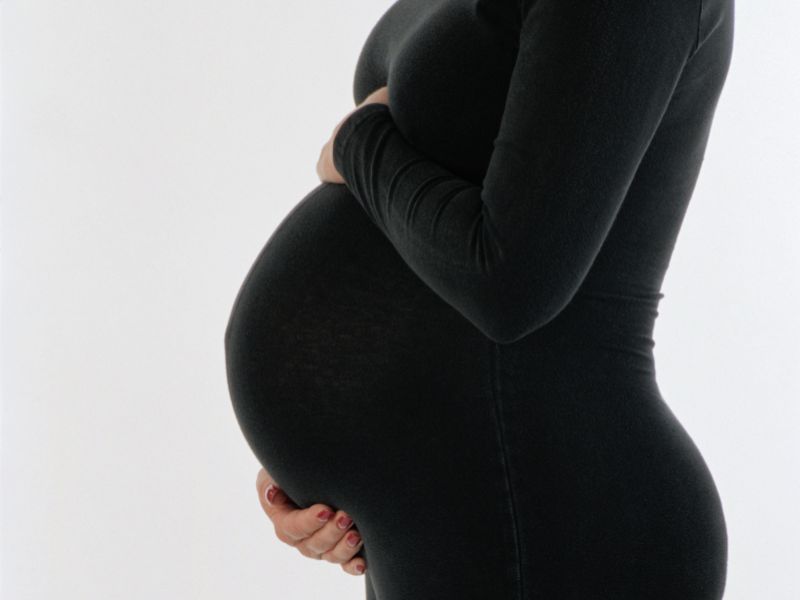Do Girls Who Have Youngsters Later Stay Longer?
 By Maureen Salamon
By Maureen SalamonHealthDay Reporter
THURSDAY, Nov. 17, 2016 (HealthDay Information) -- In what's believed to be the primary research of its type, analysis suggests that ladies who give beginning for the primary time at age 25 or older usually tend to reside to 90.
The researchers additionally discovered that ladies who survived to 90 have been extra prone to be school graduates, married and have the next earnings.
"Our research outcomes do not counsel ladies ought to delay childbearing, as a result of it isn't clearly recognized why the outcomes counsel [the link to] longevity," stated research writer Aladdin Shadyab. He is a postdoctoral fellow on the College of California, San Diego College of Medication.
"Additionally, a probable clarification is that ladies who've a baby at an older age are normally of upper social and financial standing," Shadyab added. "We all know from [prior] analysis that these individuals are additionally prone to reside longer."
Whereas the common American girl giving beginning for the primary time in the present day is simply over 26 years outdated -- hardly thought-about "older" by many societal benchmarks -- the age at first childbirth has continued to rise in the USA.
Charges of first births to ladies aged 40 and 44, for instance, greater than doubled between 1990 and 2012, in accordance with the U.S. Facilities for Illness Management and Prevention.
Analysis revealed in 2015 discovered that ladies who gave beginning to their final little one after age 33 have been twice as prone to reside to not less than age 95 as ladies doing so by age 29. However scientists had not beforehand evaluated longevity based mostly on age at first childbirth, Shadyab stated.
For the brand new research, the investigators examined knowledge on about 20,000 ladies gathered as a part of a long-term nationwide research that started in 1993. The ladies have been tracked for as much as 21 years, and 54 % survived to 90 years outdated.
Girls giving beginning for the primary time at age 25 or older have been 21 % extra prone to reside to age 90 than these giving beginning at earlier ages, the research discovered. White ladies with between two and 4 full-term pregnancies additionally had greater odds of longevity in comparison with these with one full-term being pregnant, the findings confirmed.
"Reproductive components hardly ever obtain consideration in relation to longevity," Shadyab stated, noting that he is not conscious of comparable knowledge finding out fathers. "Normally analysis is concentrated on bodily exercise, food plan and [other factors] associated to longevity, however [not] reproductive components," he added.
A U.S. longevity professional stated he wasn't shocked by the analysis findings. Steven Austad is scientific director of the American Federation for Growing old Analysis. He stated that, when the research started, the common age of the ladies was about 75 years -- an age when one-third of their friends would have already got died.
"Of the two-thirds left that have been studied, greater than half lived to 90. In the event you're not within the longevity enterprise, that sounds prefer it needs to be rather a lot -- however for those who reside to 75, you will have probability of residing to 90," stated Austad. He is additionally chair of biology at College of Alabama at Birmingham.
The research additionally reported that "for those who're well-educated and well-off and never overweight and you do not smoke, you are prone to reside a protracted life," he added. "Which is true, however not very new."
Austad famous that age 25 is not "significantly late" for giving beginning for the primary time and agreed with the research authors that ladies should not plan childbirth timing in hopes of residing longer.
The research was revealed on-line Nov. 17 within the American Journal of Public Well being.

Copyright © 2016 HealthDay. All rights reserved.
SOURCES: Aladdin H. Shadyab, Ph.D., postdoctoral fellow, rheumatology and getting old, division of epidemiology, household medication and public well being, College of California, San Diego College of Medication, La Jolla, Calif.; Steven Austad, Ph.D., scientific director, American Federation for Growing old Analysis, and chair, biology, College of Alabama at Birmingham; Nov. 17, 2016, American Journal of Public Well being, on-line
No comments:
Post a Comment